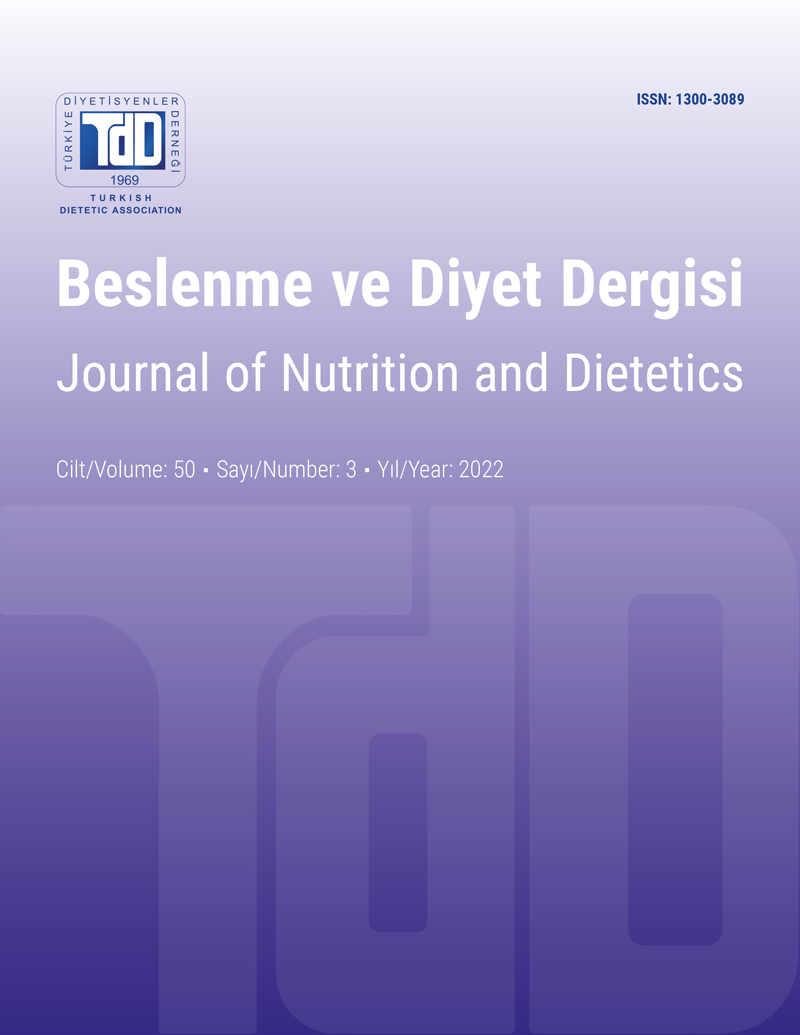Evaluation of the Relationship between Knowledge, Attitudes and Thoughts on Functional Foods and Functional Food Consumption of Individuals Who Do Regular Exercise
DOI:
https://doi.org/10.33076/2022.BDD.1489Keywords:
Functional foods, exercise, nutritionAbstract
Aim: This study was conducted to determine the knowledge, attitudes and thoughts of individuals living in Karabuk and exercising regularly on functional food and to evaluate the relationship between functional food consumption status.
Materials and Methods: The research was conducted with a total of 150 individuals (39 males, 111 women) who applied to a private nutrition and diet polyclinic in Karabuk province and exercised regularly for at least 150 minutes a week.
A questionnaire including demographic and nutritional and exercise characteristics, questions evaluating their thoughts on functional foods and Functional Food Consumption Frequency questionnaire were applied to individuals. Survey data were collected by face-to-face interview technique. SPSS 22.0 program was used for statistical analysis.
Results: The body mass index of %54.7 of the participants in the study was within the normal range. The majority of participants (%80.0) think that functional nutrients have positive effects. As a result of the research, it was determined that all of the participants used at least one of the functional nutrients. The most commonly consumed functional food is green tea (those who consume it once a day %48.7). Participants who had previously followed the diet answered questions 1, 3, 4, 5, 6 and 9 significantly more correctly than the others. This shows that the knowledge of functional foods increases in direct proportion to the correct nutrition information. In addition, participants who did not prefer some functional foods; it has been observed that these functional nutrients may be inconvenient for healthy people and that they do not use them because the information about their effect on health is exaggerated.
Conclusion: It was observed that as the duration of the participants’ exercise increased, the level of functional food information also increased. However, it was found that participants with a history of dieting had a higher level of knowledge about functional nutrition.

